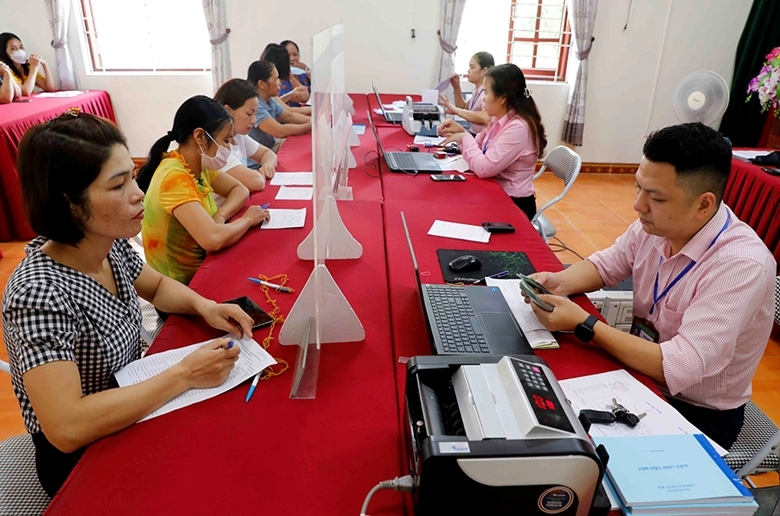Millions of poor women who have access to policy capital have helped their families overcome poverty, enrich themselves and contribute to the overall development of the country’s economy.
 |
| Social policy credit empowers poor women to become masters of the family economy |
Looking at the spacious house, with the current “crowded” co shed, few people know that the family of Ms. Son Thi Nguyen, a Khmer ethnic person living in cluster 6, ward 8, the Mekong Delta province of Tra Vinh, used to be a poor household.
Especially in 2013 when she was recognized by the local government as a poor household, her family was in extreme difficulty; her husband worked as a farmer but his health was poor, and she also had an illness in her body, adding to the burden of raising 4 children.
In the midst of difficulties, 10 years ago, she was supported by the Ward 8 Women's Union and the Cluster 6 Savings and Loans Group to access loans from the household poverty program. “Having this loan, my family met a lifesaver. I discussed with my husband and children to buy a breeding cow to raise because my family has a place to keep the barn, a source of grass for the cows to eat, and labor power,” said Nguyen.
From the initial investment, after 2 years, her family had the first calves and then increased the herd to 10 cows. “My husband has chosen to sell some beef to cover the family’s living expenses, partly to repair the house in which we live, raise the children to study, and save money to repay the loan. Five years ago, my family applied to be removed from the list of poor households,” she said.
The meaning of the capital is even clearer to those who have set up a business. In 2022, Phan Thi Thanh Hoa, leader of the No. 3 Savings and Loan Group, left a poor life in Nghe An to move to the new economic zone of Kon Plong district in the Central Highlands province of Kon Tum.
In 2003, after the VBSP in Kon Plong was established and put into operation under the enthusiastic guidance of the Communal Women’s Union, Ms. Hoa was trusted to be elected as the leader of the savings and loan group.
With 10 members, at that time, they only borrowed 50 million VND from the capital source for poor households, but they also helped the members with start-up capital to raise buffaloes, cows or plant crops, and their life was somewhat better. They also become examples of attracting economic development through credit loans in villages and communes.
Currently, the group has 60 members with an outstanding balance of 4.1 billion VND (no overdue debt). Looking back over the past 20 years, the group has supported over 200 members to get loans with a turnover of nearly 20 billion VND.
Bearing the responsibility of taking care of and protecting the legitimate rights and interests of women from all walks of life, over the past 20 years, Vietnam Women’s Unions at all levels have always identified social policy credit as an important solution to effectively carry out the task of mobilizing and supporting its members and women in economic development and sustainable poverty reduction.
They also supported women’s economic empowerment and especially implemented the criteria in the campaign “Building a 5 no, 3 clean family”, the movement to help poor women have an address to start a successful business.
Over the past 20 years, the Vietnam Women’s Union has always maintained its leading position among the four socio-political organizations entrusted with policy capital to lend to the poor and other policy beneficiaries with a total outstanding loan of 110 trillion VND for nearly 2.5 million households at 62,300 savings groups in all villages and hamlets, while overdue debt only accounted for 0.14% of the total outstanding loans./.